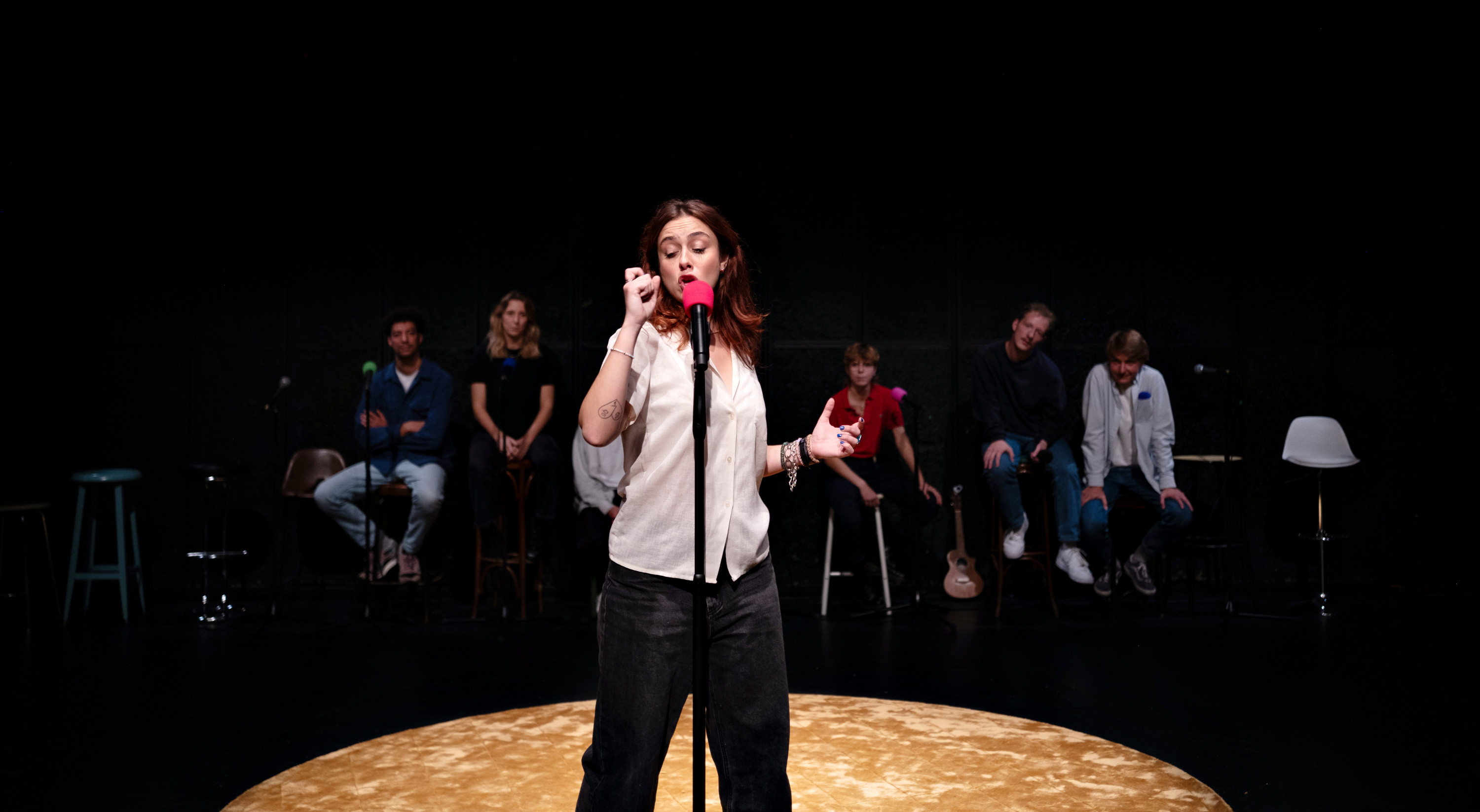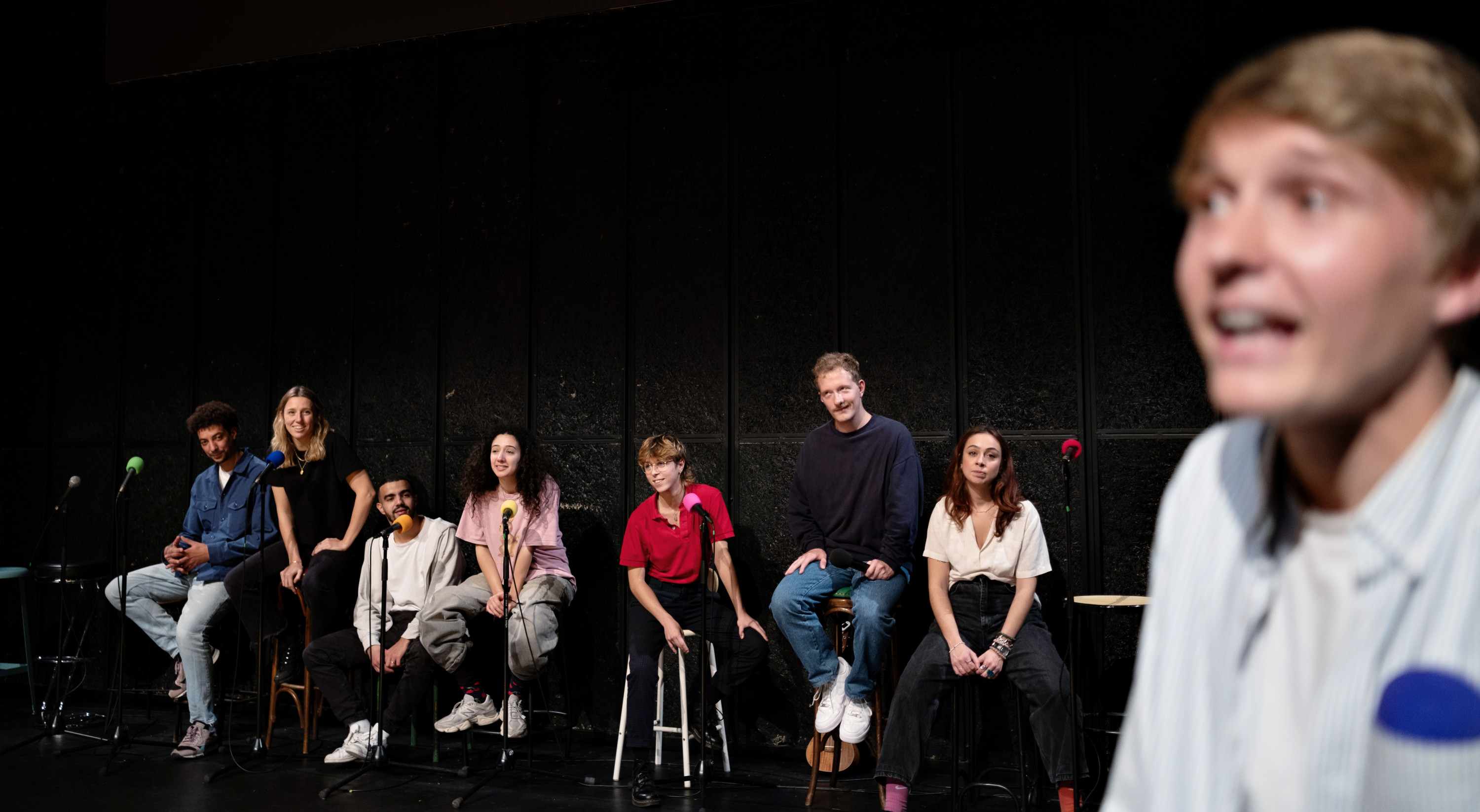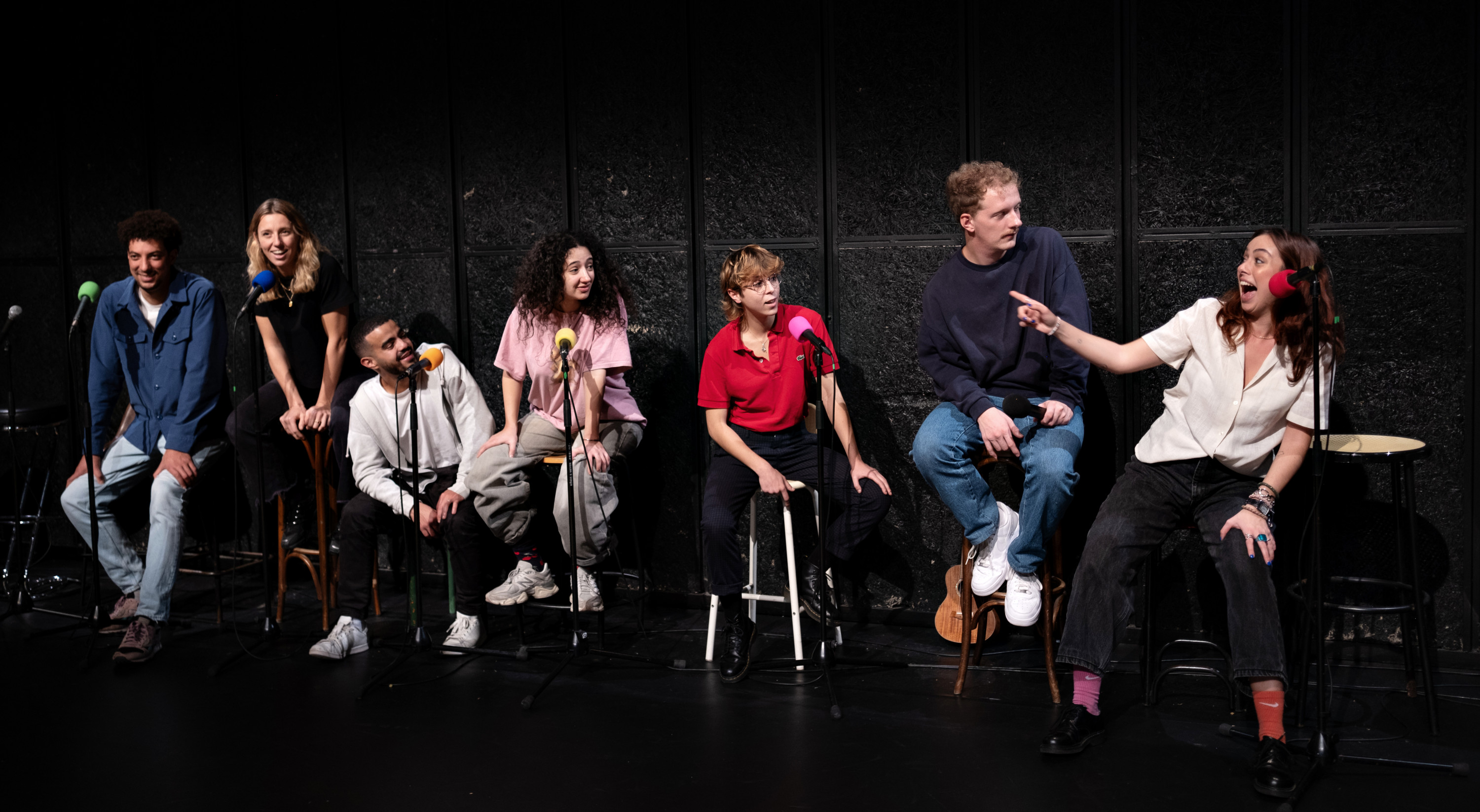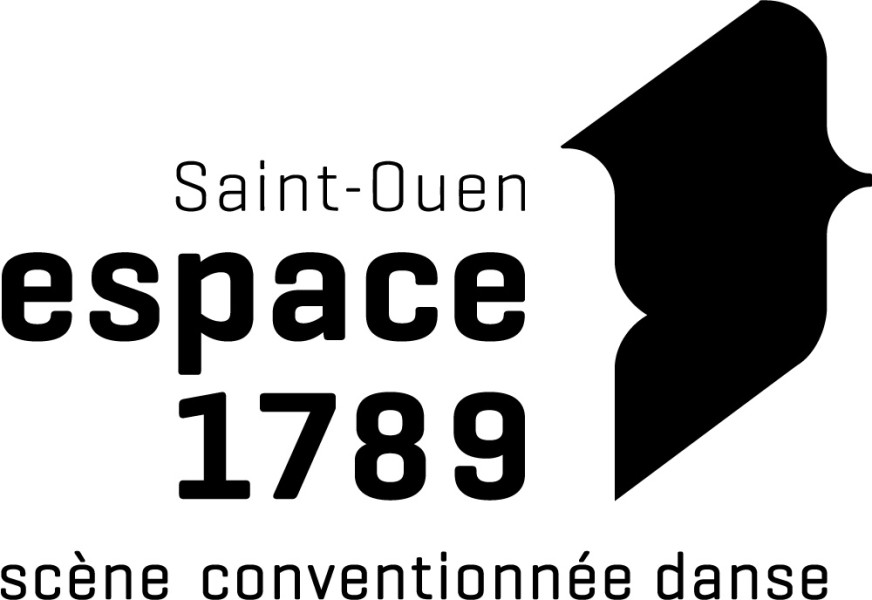Talents Adami Theater, Mohamed El Khatib
Stand-up
octoberoct 15 – 19
decemberdec 19 – 20
Directed by Mohamed El Khatib. With Emma Bojan, Chakib Boudiab, Thomas de Fouchécour, Gabrielle Giraud, Emna Kallal, Ayşe Kargili, Kevin Perrot, Najim Ziani. Artistic collaboration Camille Nauffray, Fred Hocké. Sound design Arnaud Léger.
Production Zirlib
Coproduction Adami ; Festival d’Automne à Paris
In collaboration with Théâtre du Rond-Point
Zirlib is subsidised by the Drac Centre-Val de Loire - Ministère de la Culture and by the City of Orléans.
Mohamed El Khatib is an associate artist of the Théâtre de la Ville-Paris, the Théâtre national de Bretagne and the Théâtre National Wallonie-Bruxelles.
Adami and the Festival d'Automne à Paris are co-producers of this show, which is presented in association with the Théâtre du Rond-Point.
What will it be this time: thunderous applause or icy silence? In Mohamed El Khatib's opinion, the inherently risky nature of stand-up comedy elevates it to a theatrical art in its own right. A framework for expression of all kinds, it clears the path for transgressive laughter, in a cathartic space which brings us all together.
As part of the Talents Adami Théâtre scheme, the artist asked performers to send him a two-minute video that made him laugh. For the eight young performers that now take to the stage, this request constituted a humorous, but above all democratic, lever for the selection process. Stand-up comedy, all too often relegated to the rank of the one (wo)man show is, in reality, the fruit of finely crafted writing, a pre-requisite for improvisation in itself, and frequently makes use of minimal stage sets. In this radical vision of theatre stripped to its bare essentials, only the performer's vitality and ability to take risks, combined with their unique writing, gives flesh to the show. To start with, Mohamed El Khatib deals the traditional stand-up card, showing each soloist in their own personal universe, such as their relationship to power, social categories, sex, fears, and prejudices. Little by little, he then composes a choral score that spans the history of stand-up, taking in its origins and ability to measure the pulse of events in society in an insolent way. Might stand-up comedy, this eminently contemporary phenomenon, be the vital platform we need for telling long-overlooked stories?
See also
In the same place




